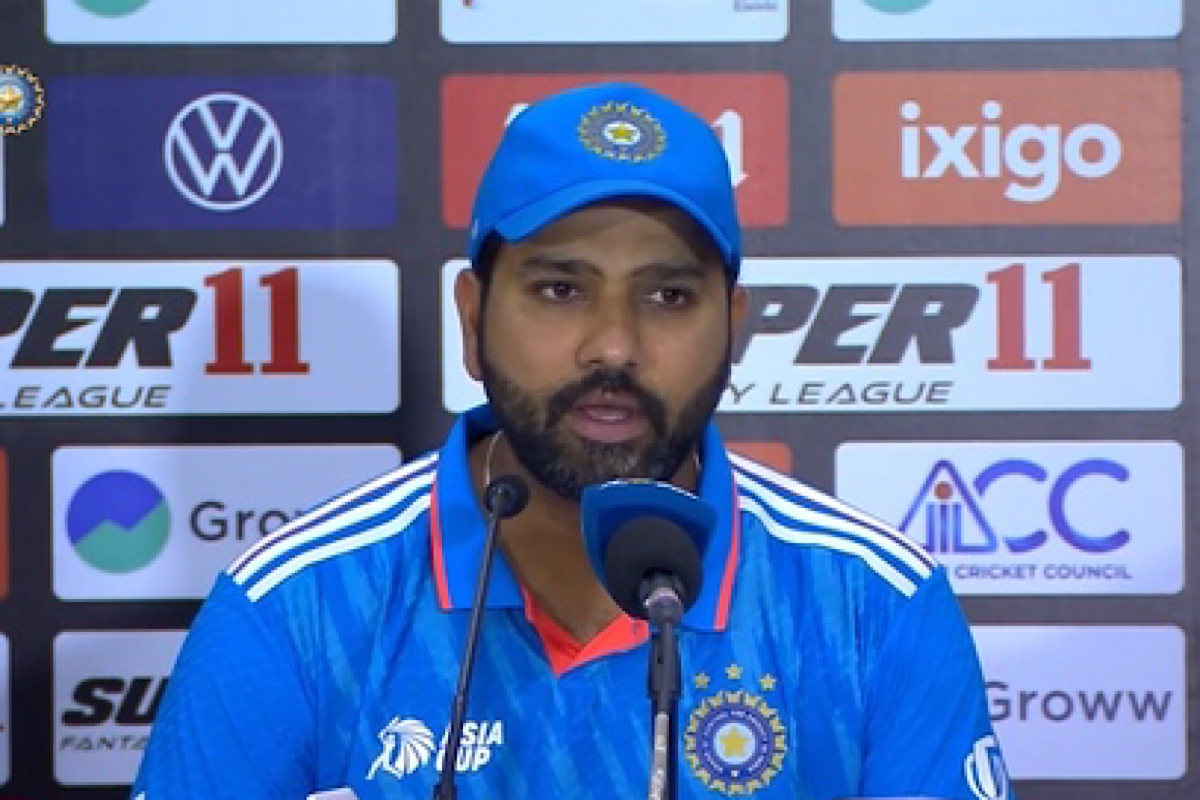Bruised and battered after the 10-wicket drubbing at the hands of
Australia in the Pink-ball Test at the Adelaide Oval, India skipper
Rohit Sharma said that the concept of playing a day-night Test is
always challenging but that cannot be an excuse for their flop show
with the bat across both innings.
Rohit acknowledged that his team underperformed, failing to replicate
their success from the opening Test in Perth. He praised Australia for
capitalizing on their chances and emphasised the importance of
bouncing back in the third Test at the Gabba in Brisbane, starting
December 14.
Advertisement
“A disappointing week for us, we didn’t play well, and Australia
played better cricket than us and won the Test match. We failed to
grab our opportunities,” Rohit remarked.
“We didn’t bat well enough, probably 30-40 runs short with the bat in
the first innings. There were opportunities when Australia were
batting and we failed to take those chances. When you miss those
chances, it’s never easy.”
“You know when you come to Australia, you have to play a pink-ball
Test. You have to be mentally ready to bat under different conditions.
It can be difficult but that cannot be an excuse. The conditions are
for both teams, they batted well and got the runs. We didn’t bat well
enough to get enough runs,” added Rohit.
Shedding light on the next Test in Brisbane, Rohit offered a tone of
positivity and referred to the team’s past success at the venue. India
have dropped to third in the WTC standings and the Gabba will be the
perfect place to turn the tide back in India’s favour, considering
their success at the venue last time out.
“We are looking forward to it (Gabba Test). Some really good memories
there. We want to start well and play well. There’s not much time in
between as well. You know we just want to go out there and think about
what we did right, you know in Perth and also what we did last time
when we were here,” he said.
The last time India played a Test at the Gabba, Rishabh Pant’s
warrior-esque unbeaten 89 to chase down 328 handed Australia their
first loss at the ground since 1988, and also a 2-1 series win for the
visitors.
Rohit also highlighted Jasprit Bumrah’s efforts, praising his spell
but acknowledged the need for other bowlers to step up.
“Bumrah will not get wickets at times, and the other guys need to step
in. That’s how we talk in the batting group as well, ‘x, y, z’ would
not be scoring runs all the time. Everyone in the team understands
that.”
“It’s just not about one individual or two; if you want to win a Test
or a series, everyone has to share the responsibility, put their hand
up, and get the job done. That’s something I have always seen in this
team,” he said, referring to Harshit Rana, Nitish Reddy and others who
are still finding their footing at the Test level.
While Bumrah and Siraj scalped four each in the first innings, Rana
and Reddy, playing in just their second Test, combined for 22 overs
and grabbed only one wicket.
Rohit further stressed his role in instilling confidence in these
youngsters who are new to the international stage.
“They need confidence, and it’s my job to provide it. When they play a
match, they must feel assured.”
Bumrah took charge of the ball for 23 overs in the first innings in
Adelaide and returned figures of 4-61. Rohit, who took over captaincy
from the pacer following the win in Perth in the first Test, addressed
workload management for Bumrah, emphasizing the need for strategic
planning to keep him fresh for the entire five-match Test series.
“I keep talking to him (Bumrah) during his spells, asking how his body
is holding up. It’s a five-Test series, and we want Bumrah to be fresh
and play all five matches. It’s important to analyse these things;
workload management is crucial.”
“Planning always happens. You can’t expect Bumrah to bowl from both
ends, from morning to evening. It’s important to manage the bowlers.
We talk to them and then make decisions,” he added.











